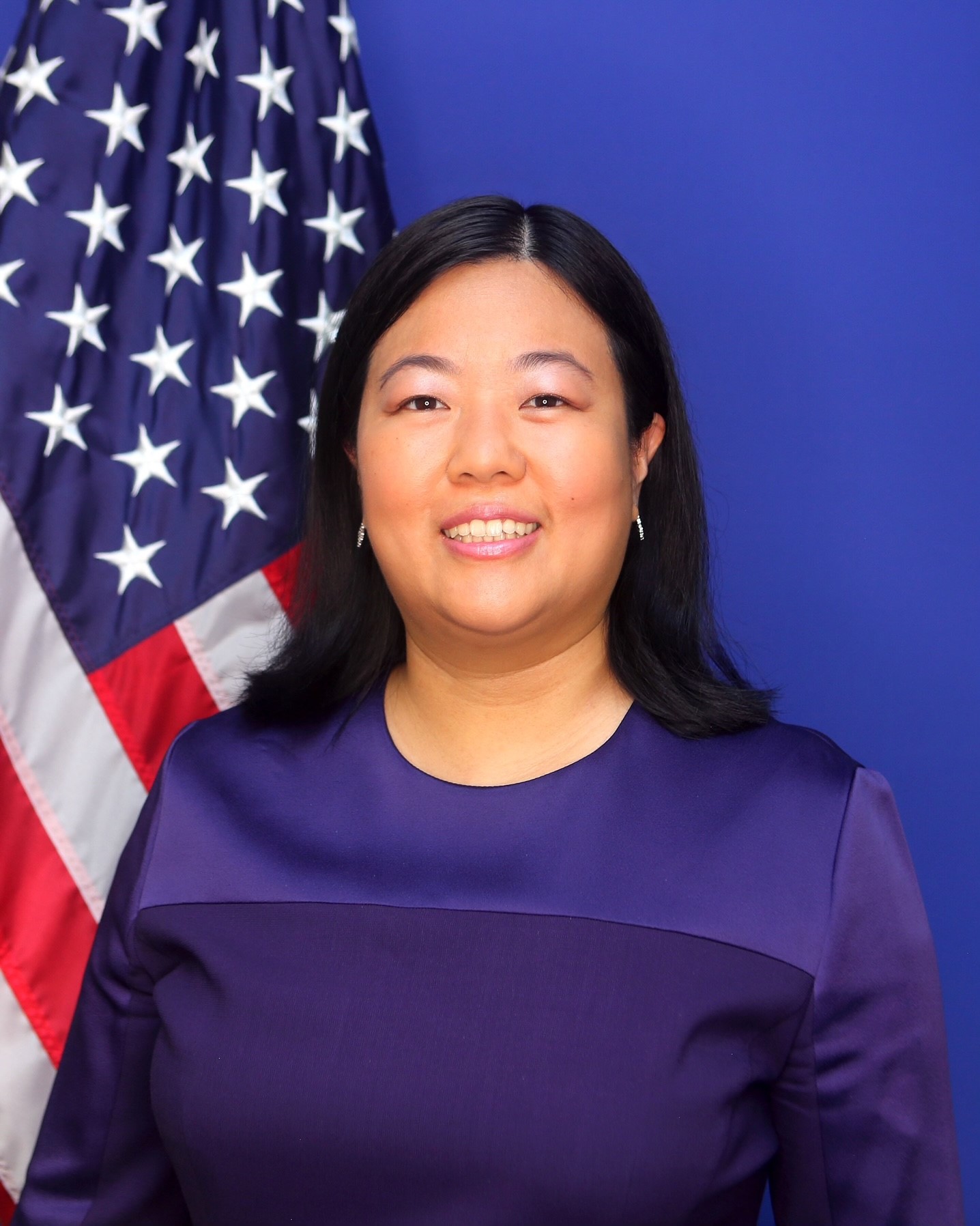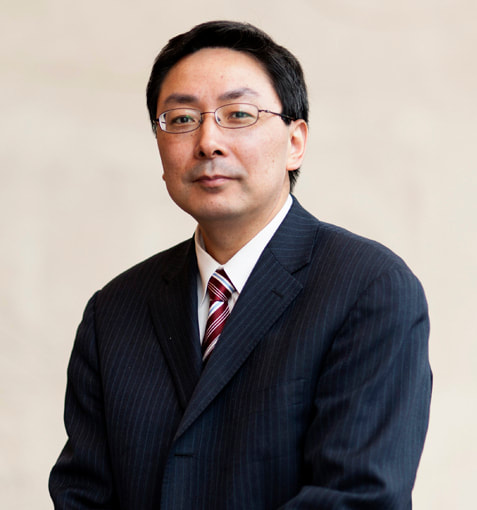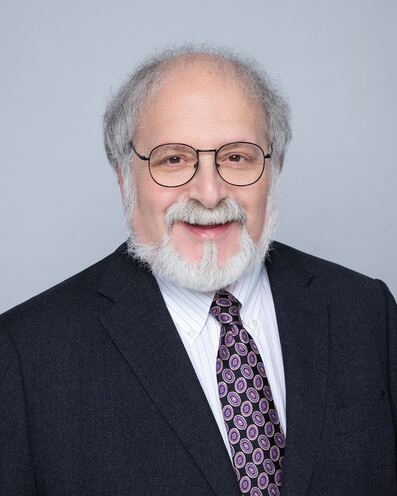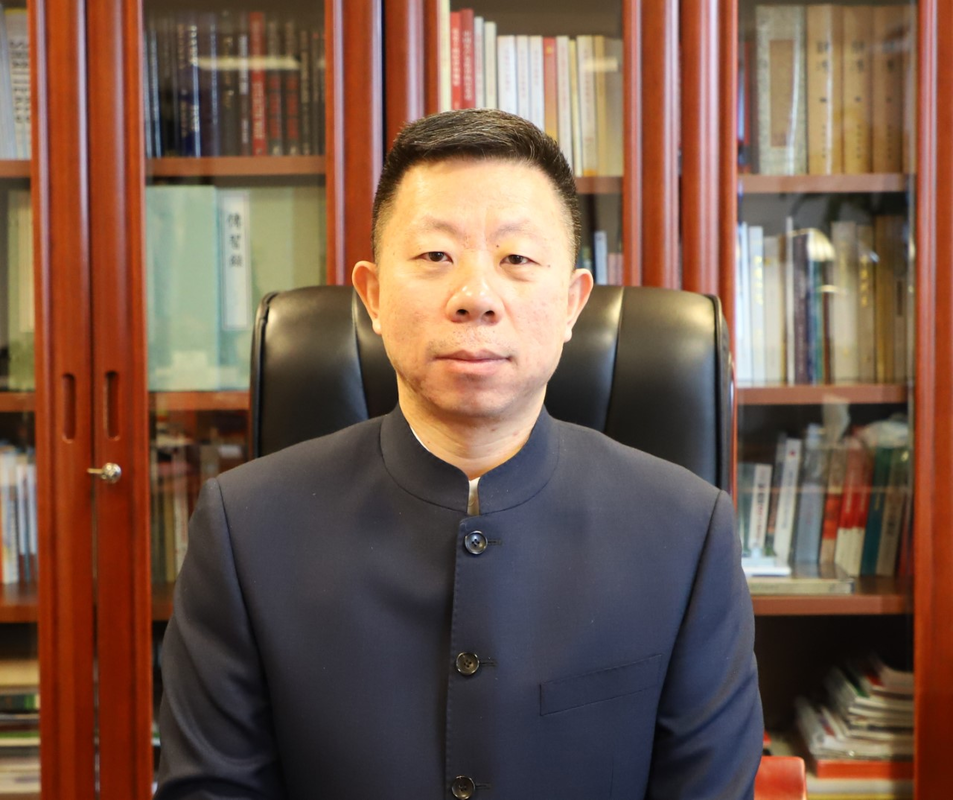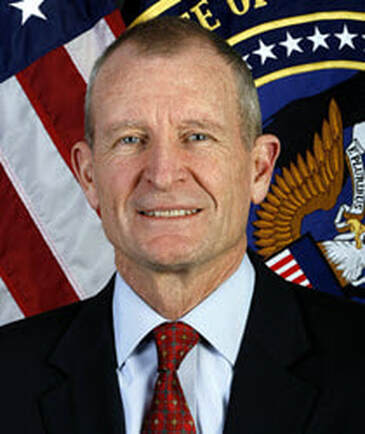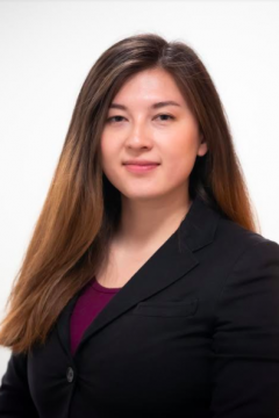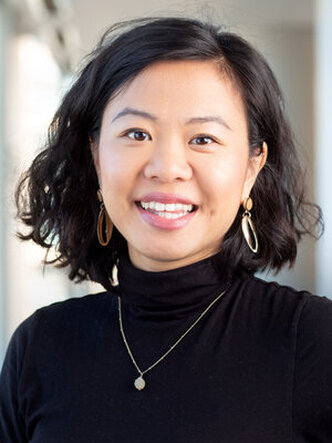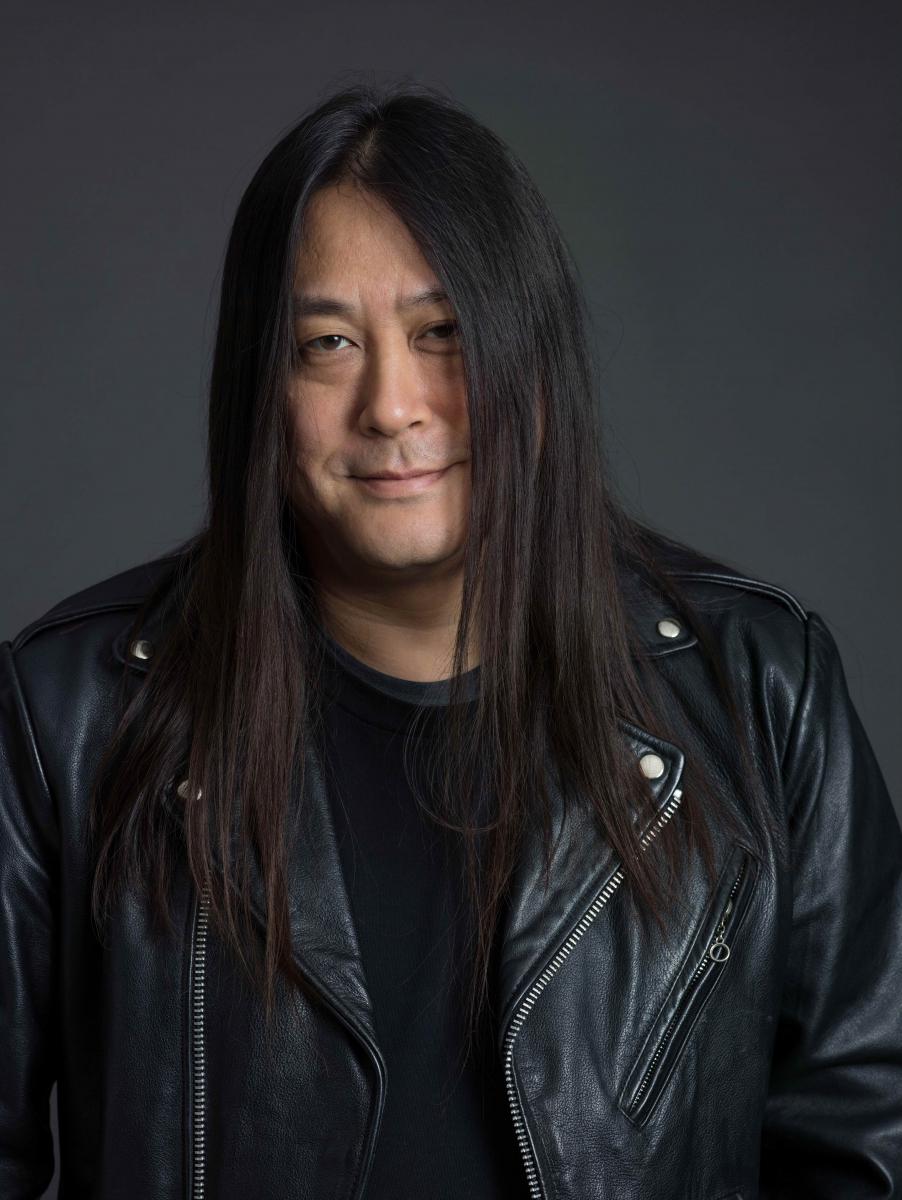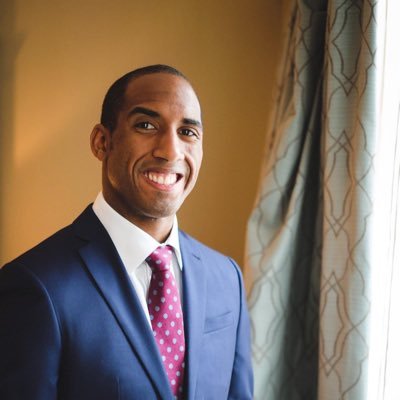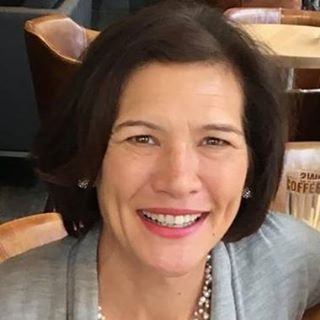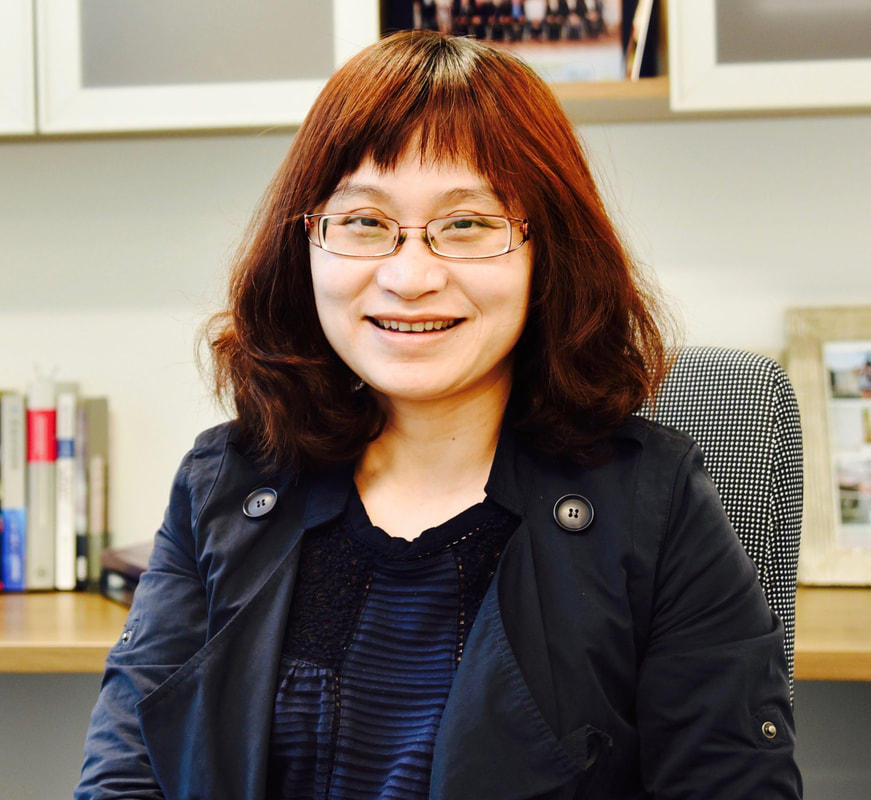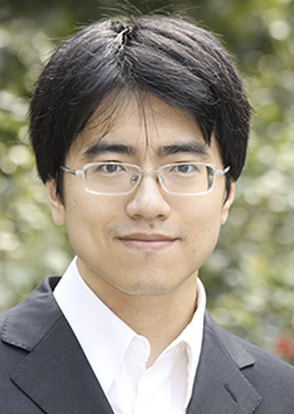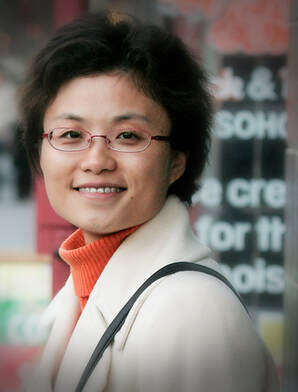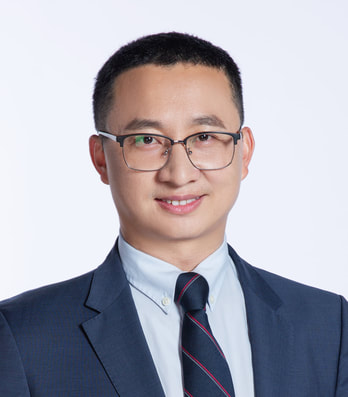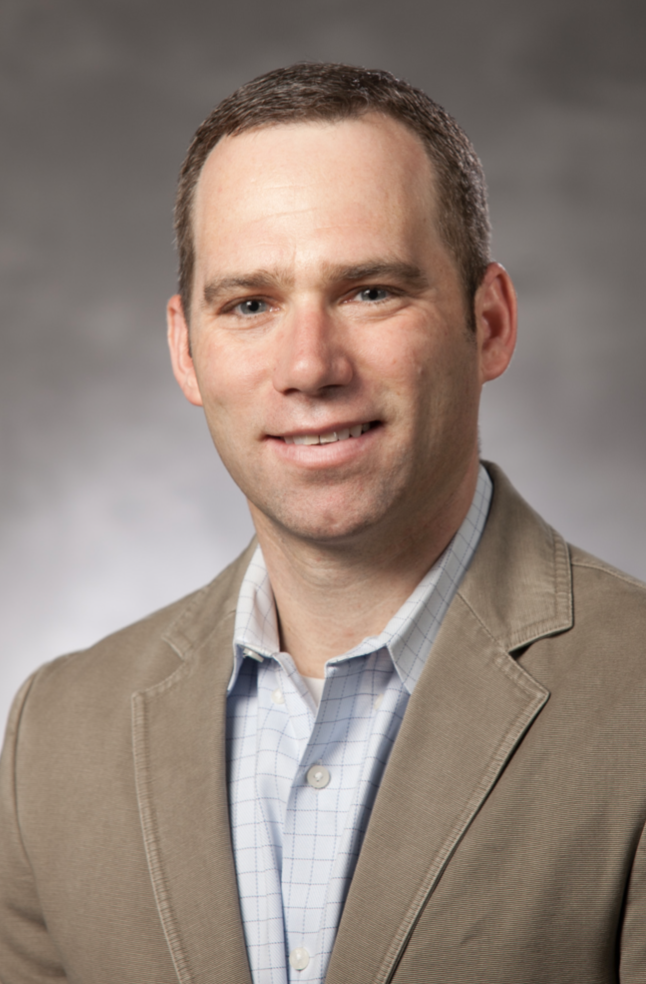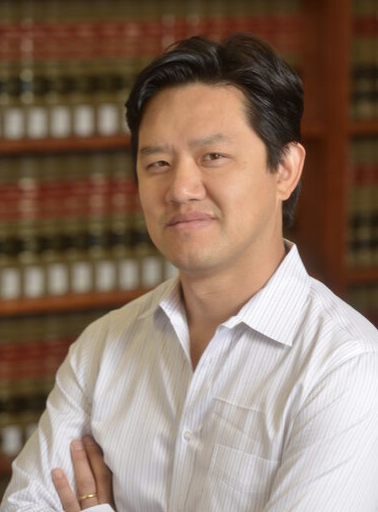|
Consul General Melissa J. Lan
Consul General of the Consulate General of the United States of America in Wuhan, China Consul General Lan is a career Foreign Service Officer and prior to her arrival was the Acting Director of the Office of Afghanistan Affairs. Consul General Lan has focused on East and South Central Asia for over a decade, including as the U.S. Embassy Beijing 2008 Olympics Coordinator, in the Office of Chinese and Mongolian Affairs, and with the U.S. Embassy in Seoul, Republic of Korea. Her other assignments include the Office of the Under Secretary for Political Affairs, the Executive Secretariat, Foreign Policy Advisor, Office of Maghreb Affairs, and U.S. Embassy Beirut, Lebanon. She also served at the U.S. Embassy in Sana’a, Yemen and following suspension of operations in 2015 helped establish the Yemen Affairs Unit in Jeddah. |
|
Jonathan Woetzel
Director of the McKinsey Global Institute (MGI) Based in China since 1985, Dr. Woetzel has been instrumental in building McKinsey's China office. In addition to his work helping Chinese and other Asian businesses prepare for global growth, Dr. Woetzel is a director of the McKinsey Global Institute (MGI), McKinsey's business and economics research arm. He also leads McKinsey's Cities Special Initiative and is responsible for convening McKinsey's work with city, regional, and national authorities in more than 40 geographies around the world. Dr. Woetzel leads research on China, Asia, and global economic and business trends, helps cities and regions create sustainable growth, and supports the transformation of Asian companies into global champions. |
|
Yanzhong Huang
Senior Fellow for Global Health at the Council on Foreign Relations Dr. Huang is a senior fellow for global health at the Council on Foreign Relations, where he directs the Global Health Governance roundtable series. He is also a professor and director of global health studies at Seton Hall University's School of Diplomacy and International Relations, where he developed the first academic concentration among U.S. professional international affairs schools that explicitly addresses the security and foreign policy aspects of health issues. He is the founding editor of Global Health Governance: The Scholarly Journal for the New Health Security Paradigm. Dr. Huang has written extensively on China and global health. He is the author of Governing Health in Contemporary China (2013) and Toxic Politics: China’s Environmental Health Crisis and Its Challenge to the Chinese State (2020). |
|
Denis Simon
Senior Adviser to the President for China Affairs at Duke University Dr. Simon is Senior Adviser to the President for China Affairs at Duke University. He also holds a faculty appointment in the Fuqua School of Business at Duke. Formerly, from 2015-2020, he served as the Executive Vice Chancellor at Duke Kunshan University—a Sino-US joint venture involving Duke, Wuhan University and the city of Kunshan. He is the 2020 recipient of the Charles Klasek Award, issued the AIEA—the Assoc of Inter Education Administrators—given for his substantial achievements in the field of international education. Dr. Simon’s career included spells as senior adviser on China and global affairs in the Office of the President at Arizona State University; vice-provost for international affairs at the University of Oregon; and professor of international affairs at Penn State University’s School of International Affairs. He also has had extensive leadership experience in management consulting having served as General Manager of Andersen Consulting in Beijing (now Accenture) and the Founding President of Monitor Group China. |
|
Minister Quan Jing
Minister of the Embassy of the People’s Republic of China in the United States of America Quan Jing (井泉) is the Minister of the Embassy of the People’s Republic of China in the United States of America. He was born in Shaanxi Province, China. After receiving his bachelor’s degree, Minister Jing started his career as a diplomat. He started his diplomatic service as an Attaché and Third Secretary at the Chinese Embassy in Thailand. After that, Minister Jing began to focus his career on China’s relations with the United States and other countries in North America and Oceania. From 2002 to 2022, he served in the Department of North American and Oceanian Affairs of the Chinese Ministry of Foreign Affairs, the Chinese Embassy in the United States, and the General Office of the State Council of the P.R.C. Before being assigned to Washington D.C. in 2021, Minister Jing served as the Deputy Director-General of the Department of North American and Oceanian Affairs of the Chinese Ministry of Foreign Affairs. |
|
Admiral Dennis C. Blair
Knott Professor of the Practice at the University of North Carolina Admiral Blair previously served as Director of National Intelligence from January 2009 to May 2010. He led sixteen national intelligence agencies, administering a budget of $50 billion and providing integrated intelligence support to the president, Congress, and operations in the field. Prior to this appointment, he held the John M. Shalikashvili Chair in National Security Studies with the National Bureau of Asian Research (NBR) and served as Deputy Director of the Project for National Security Reform. Admiral Blair is active as a director and advisor to many organizations globally. He has been awarded four Defense Distinguished Service medals and three National Intelligence Distinguished Service medals, and has received decorations from the governments of Japan, Thailand, Korea, Australia, the Philippines, and Taiwan. |
|
Alison Friedman
Executive and Artistic Director for Carolina Performing Arts Alison Friedman is the James and Susan Moeser Executive and Artistic Director for Carolina Performing Arts at UNC Chapel Hill. Prior to that, Friedman was artistic director of performing arts for the West Kowloon Cultural District in Hong Kong, one of the world's largest arts and cultural developments. Previously she founded and ran Ping Pong Productions, a US- and Beijing-registered cultural exchange organization that works in more than 50 countries on five continents. She was a 2002-03 Fulbright Scholar to China, a John F. Kennedy Center arts management fellow, and a fellow at the National Committee on U.S.-China Relations Public Intellectuals Program. She is fluent in Mandarin and works with renowned and emerging artists across Asia, Europe, Australia, North and South America. |
|
Cecilia Han Springer
Assistant Director, Global China Initiative at the Boston University Global Development Policy Center Dr. Springer is the Assistant Director, Global China Initiative at the Boston University Global Development Policy Center. Her interdisciplinary research focuses on the environmental impacts of China’s overseas investment, policymaking processes within China and industrial decarbonization. She also leads GCI's energy and climate research team, which aims to identify opportunities for shifting development finance and overseas engagement towards renewable energy sources. Previously, she was a Post-doctoral Fellow at the Harvard Kennedy School. She earned a M.S. and Ph.D. from the Energy and Resources Group at the University of California, Berkeley and a B.S. in Environmental Science from Brown University. |
|
Emily Feng
NPR's Beijing Correspondent Ms. Feng joined NPR in 2019. She roves around China, through its big cities and small villages, reporting on social trends as well as economic and political news coming out of Beijing. Ms. Feng contributes to NPR's newsmagazines, newscasts, podcasts, and digital platforms. Previously, Ms. Feng served as a foreign correspondent for the Financial Times. Based in Beijing, she covered a broad range of topics, including human rights and technology. She also began extensively reporting on the region of Xinjiang during this period, becoming the first foreign reporter to uncover that China was separating Uyghur children from their parents and sending them to state-run orphanages, and discovering that China was introducing forced labor in Xinjiang's detention camps. Her human rights coverage has been shortlisted by the British Journalism Awards in 2018, recognized by the Amnesty Media Awards in February 2019 and won a Human Rights Press merit that May. Her radio coverage of the coronavirus epidemic in China earned her another Human Rights Press Award, was recognized by the National Headliners Award, and won a Gracie Award. She was also named a Livingston Award finalist in 2021. |
|
Kaiser Kuo
Founder and Co-Host, Sinica Podcast Mr. Kuo is co-founder of the Sinica Podcast, the most popular English-language podcast on current affairs in China, which he hosts with Jeremy Goldkorn. The show has run since April 2010, and has published nearly 400 episodes. Until April 2016, Mr. Kuo served as director of international communications for Baidu, China’s leading search engine. In 2016, Mr. Kuo returned to the U.S. after a 20-year stint in Beijing, where his career spanned the gamut from music to journalism to technology. Mr. Kuo also spent a year in Beijing from 1988 to 1989, when he co-founded the seminal Chinese heavy metal band Tang Dynasty as lead guitarist. He then served as editor-in-chief at ChinaNow.com, one of China’s first bilingual online magazines. He was China bureau chief for technology and business magazine Red Herring and worked as Director of Digital Strategy for Ogilvy & Mather in Beijing. In May 2016, he was honored by the Asia Society with a leadership award for “revolutionizing the way people live, consume, socially interact, and civically engage.” |
|
Leland Lazarus
Special Assistant and Speechwriter to the Commander of U.S. Southern Command Mr. Lazarus serves as the Special Assistant and Speechwriter to the Commander of U.S. Southern Command. He advises the Commander on a broad spectrum of subjects, issues, and policy considerations related to Latin America and the Caribbean and helps develop SOUTHCOM’s counter-PRC strategic messaging. From 2016-2021, Mr. Lazarus was a State Department Foreign Service Officer, serving as Consular Officer at the U.S. Consulate General in Shenyang, China and Pickering Fellow at U.S. Embassy Beijing and the China Desk in DC. Before joining the U.S. government, Mr. Lazarus worked as an Associate Producer at China Central Television, and taught English Language as a Fulbright scholar in Panama. He also leads the Diversity and Inclusion initiatives as Board Member of the Fulbright Association, and co-leads the Chinese Language Group under the National Association for Black Engagement in Asia. |
|
Louisa Greve
Director of Global Advocacy for the Uyghur Human Rights Project Previously, Ms. Greve was Vice President for Programs and East Asia Director at the National Endowment for Democracy, with past experience at Special Olympics International, the Corporation for National and Community Service, and the United Nations Development Program. She is an experienced non-profit advisor and an expert on human rights in China, having traveled and worked in China since 1980. Her first visit to the region was in 1988. She currently also serves as Washington Fellow for CSW, an advocacy group promoting freedom of religion or belief for all peoples and faiths. Ms. Greve has served on the Amnesty International USA board of directors, the Virginia Advisory Committee of the U.S. Commission on Civil Rights, the International Advisory Committee of the Coalition to End Transplant Abuse in China, and the Liberty's Promise board of directors. She is the author of several book chapters on ethnic issues and human rights in China, and has testified before Congress on democracy in Asia. |
|
Nong Hong
Research fellow with China Institute, University of Alberta, Canada, and the National Institute for South China Sea Studies Dr. Hong's research takes an interdisciplinary approach to examining international relations and international law, with focus on International Relations and Comparative Politics in general; ocean governance in East Asia and the Arctic; law of the sea; international security, particularly non-traditional security; and international dispute settlement and conflict resolution. Her selected publications include China’s Role in the Arctic: Observing and Being Observed (London and New York: Routeldge, 2020), UNCLOS and Ocean Dispute Settlement: Law and Politics in the South China Sea (Routledge, 2012). |
|
Taisu Zhang
Professor of Law at Yale Law School Professor Zhang works on comparative legal and economic history, private law theory, and contemporary Chinese law and politics. He is the author of two books, The Ideological Foundations of Qing Taxation: Belief Systems, Politics, and Institutions (Cambridge University Press), and The Laws and Economics of Confucianism: Kinship and Property in Pre-Industrial China and England (Cambridge University Press). These are the first two entries in a planned trilogy of books on the institutional and cultural origins of early modern economic divergence. Zhang’s works have received the 2018 Presidents Award from the Social Science History Association and the 2018 Gaddis Smith Book Prize from the MacMillan Center for International and Area Studies. |
|
Bingchun Meng
Associate Professor in the Department of Media and Communications at the London School of Economics, Programme Director for the MSc Global Media and Communications Dr. Meng's main research interests lie in communication governance and media production, both of which are examined in the context of globalization and technological shifts. There are three strands in this research: 1) What are the institutional responses to the challenges brought by new communication practices such as disturbance to political control and subversion of the conventional business model; what are some wider ramifications of such responses? 2) How have the institutional arrangements of media production changed in response to the local and global conditions and how the change affects the content being produced. 3) Media production at the grass-root level. How citizens exploit the opportunities afforded by digital technologies to expand their cultural and political participation, which, in different social contexts, may be constrained. These lines of research are connected by a general inquiry into the power dynamics operating at the macro- and micro-levels in communication networks. |
|
Weiming Tang
Research Assistant Professor of Medicine, Director of the University of North Carolina Project-China Dr. Tang is the Co-Director of UNC Project-China, and the Advisor of SESH Global. His background training is in the field of epidemiology, with an emphasis on HIV/STI epidemiology, study design, and data analysis. Dr. Tang's research focuses on promoting HIV/STI testing and healthy behavior change among key populations. Specifically, Dr. Tang is interested in using crowdsourcing and other participatory methods to enhance health services. In addition, Dr. Tang also focuses his studies on digital health/telemedicine, especially in the evaluation of digital health. Over his career, Dr. Tang has co-authored on more than 200 peer-reviewed publications. |
|
Edmund Malesky
Professor of Political Economy, Director of the Duke Center for International Development (DCID) ** The speaker will be unable to attend 2022 CLS because of time conflict. Dr. Malesky is a Professor of Political Economy in the Political Science Department at Duke University and a noted specialist in economic development, authoritarian institutions, and comparative political economy in Vietnam. In August of 2020, Malesky became the director of the Duke Center for International Development (DCID), a unit within Duke University’s Sanford School of Public Policy that advances international development policy and practice through interdisciplinary approaches to post-graduate education, mid-career training, international advising, and research. In 2019, he was elected Chair of the Southeast Asia Research Group (SEAREG) Council. Since 2014, he has been a member of the board of the International Political Economy Society (IPES). He also serves on the editorial boards of several publications, including the Journal of Politics, Comparative Political Studies, and the Journal of East Asian Studies. In 2012, he received a state medal from the Government of Vietnam for his role in promoting economic development for USAID’s Vietnam Provincial Competitiveness Index. In 2013, Dr. Malesky was appointed by President Obama to serve on the board of the Vietnam Education Foundation. Dr. Malesky has published extensively in leading political science and economic journals and has received several academic awards including the Harvard Academy Fellowship (2004-2005; 2007-2008) and the Rockefeller Bellagio Residency Fellowship (2014). |
|
Alex Wang
Professor of Law at UCLA School of Law and Faculty Co-Director of the Emmett Institute on Climate Change and the Environment ** The speaker will be unable to attend 2022 CLS because of time conflict. Professor Wang is the Faculty Co-Director of the Emmett Institute on Climate Change and the Environment. He is a leading expert on environmental governance and the law and politics of China. His research focuses on the social effects of law, and the interaction of law and institutions in China and the United States. His previous research has examined, among other things, the institutional design of environmental law and policy, environmental bureaucracy, public interest litigation, information disclosure, and environmental courts. His work has addressed air pollution, climate change, and other environmental issues. |

